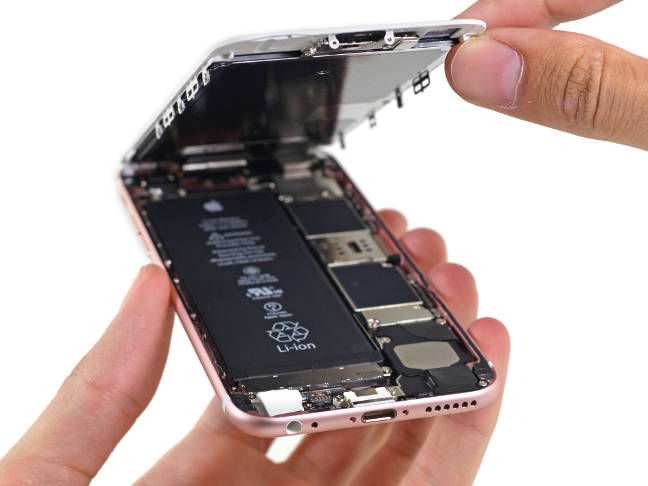Charging Your IPhone Literally Costs Apple Millions As Batterygate Saga Slams Shut

Apple's "Batterygate" legal saga is finally swinging shut – in the US, at least – with a final appeal being voluntarily dismissed, clearing the way for payouts to class members.
The US lawsuit, which combined 66 separate class actions into one big legal proceeding in California, was decided in 2020, with the outcome requiring Apple to pay out between $310 million and $500 million to claimants.
Some US claimants were unhappy with the outcome of the case, and appealed to the Ninth Circuit Court of Appeals. That appeal was finally dropped last week, allowing for payments to those who filed a claim before October 6, 2020, to begin. With around 3 million claims received, claimants will be due around $65 each.
"The settlement is the result of years of investigation and hotly contested litigation. We are extremely proud that this deal has been approved, and following the Ninth Circuit's order, we can finally provide immediate cash payments to impacted Apple customers," said Mark Molumphy, an attorney for plaintiffs in the case.
Apple didn't respond to our questions.
A settlement nearly a decade in the making
For those who've chosen to forget about the whole Batterygate fiasco, it all started in 2016 when evidence began pointing to Apple throttling CPUs in older iPhones to prevent accelerated battery drain caused by newer software and loss of battery capacity in aging devices.
Devices affected by Apple's CPU throttling include iPhone 6 and 7 series handsets as well as the first-generation iPhone SE.
- Unlike your iPhone, Apple's batterygate controversy refuses to die
- Apple may have to cough up $1bn to Brits in latest iPhone Batterygate claim
- There was a crooked man who bought a crooked M1 iMac, and we presume they lived together in a little crooked house
- Finally, someone takes a stand against Apple, Samsung for slowing people's phones. Just a few million dollars, tho
Apple admitted as much in late 2017, and just a day later lawsuits began pouring in around the US from angry iDevice owners looking for recompense. Complaints continued into 2020 from users of older iPhones updated to iOS 14.2, who said their devices started overheating and the battery would drain in mere minutes.
The US case, as mentioned above, was decided in favor of the plaintiffs in 2020, though late last year the settlement was overturned by the Ninth Circuit, which said the lower court judge had applied the wrong legal standard in making his decision. The settlement was reinstated after a second examination earlier this year.
The reason for the objection and its withdrawal isn't immediately clear. Lawyers for Sarah Feldman and Hondo Jan, who filed both objections to the settlement, didn't immediately respond to questions from The Register.
Apple also won't be completely off the hook for its iPhone throttling – it's also facing a similar complaint in the UK, where a case was filed last year that Apple asked to have tossed in May. That attempt failed, and hearings in the case are scheduled for late August and early September.
The UK case, brought by consumer advocate Justin Gutmann, is seeking to recover £1.6 billion ($2 billion) from Apple if, like the US case, the courts end up deciding against Cook and co. ®
From Chip War To Cloud War: The Next Frontier In Global Tech Competition
The global chip war, characterized by intense competition among nations and corporations for supremacy in semiconductor ... Read more
The High Stakes Of Tech Regulation: Security Risks And Market Dynamics
The influence of tech giants in the global economy continues to grow, raising crucial questions about how to balance sec... Read more
The Tyranny Of Instagram Interiors: Why It's Time To Break Free From Algorithm-Driven Aesthetics
Instagram has become a dominant force in shaping interior design trends, offering a seemingly endless stream of inspirat... Read more
The Data Crunch In AI: Strategies For Sustainability
Exploring solutions to the imminent exhaustion of internet data for AI training.As the artificial intelligence (AI) indu... Read more
Google Abandons Four-Year Effort To Remove Cookies From Chrome Browser
After four years of dedicated effort, Google has decided to abandon its plan to remove third-party cookies from its Chro... Read more
LinkedIn Embraces AI And Gamification To Drive User Engagement And Revenue
In an effort to tackle slowing revenue growth and enhance user engagement, LinkedIn is turning to artificial intelligenc... Read more

